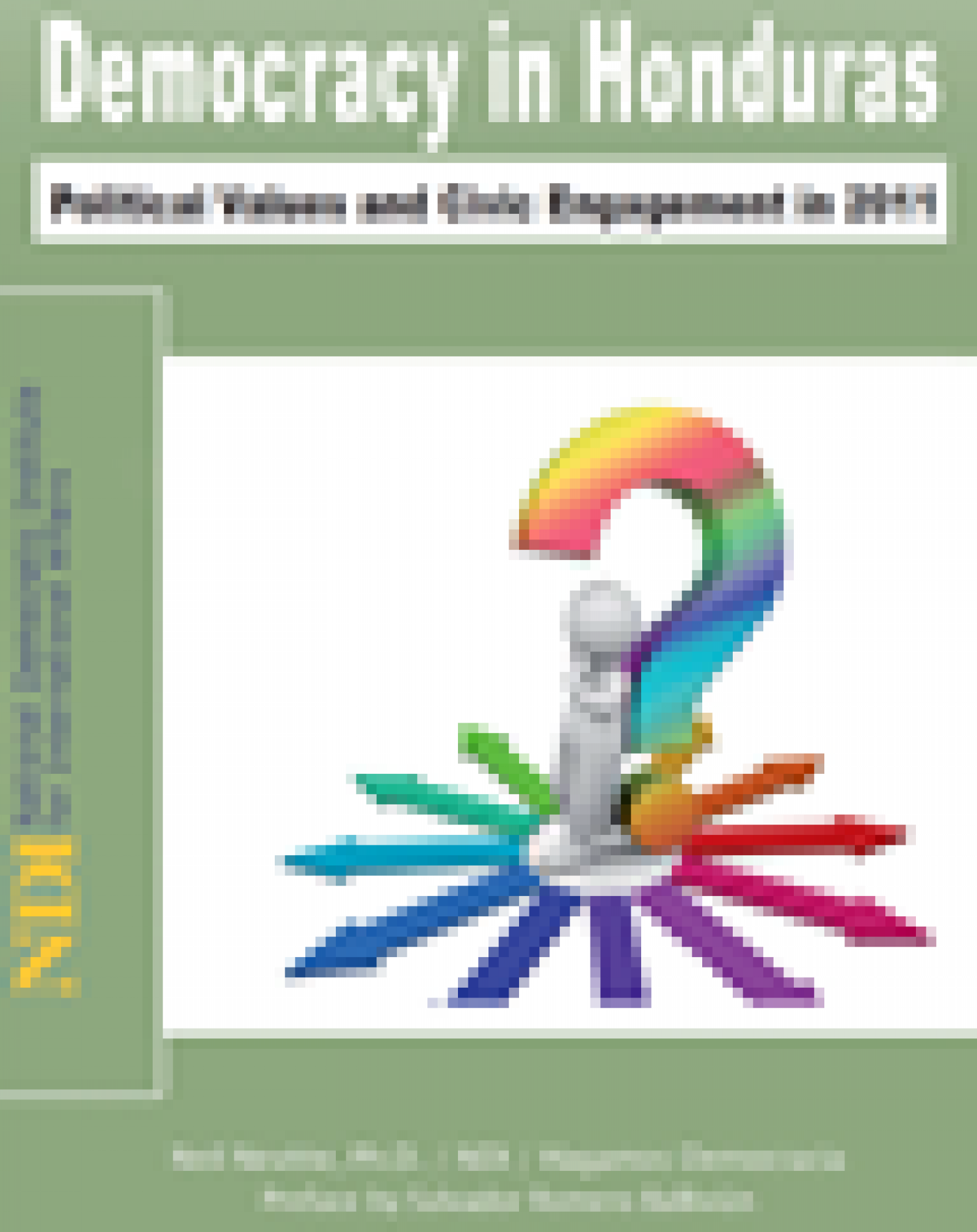
SHARE
Honduras has taken important steps to restore its democracy since a coup d’état two years ago, but Hondurans remain polarized and frustrated with the quality of their political institutions.
A majority lacks confidence in all of the country’s institutions, from political parties and the courts to the army and the presidency, according to Democracy in Honduras: Political Values and Civic Engagement in 2011, a new NDI publication based on public opinion research conducted earlier this year.
The 2009 coup, carried out by the military under Supreme Court orders, was triggered when President Manuel Zelaya attempted to rewrite the constitution, which critics saw as a veiled effort to overturn a ban on presidential re-election. Public support for the country’s political institutions has recovered poorly since the crisis, and new institutions formed since the coup have garnered the confidence of only a quarter of the population.
A majority of Hondurans (52 percent) has no confidence in the National Front of Popular Resistance (FNRP), a civic coalition led by Zelaya that is pressing for a constituent assembly to rewrite the constitution; only 22 percent support it. They similarly voiced little support for the military (23 percent,) the president (18), the judiciary (14) and Congress (7). The study found that Hondurans are open to reforming their constitution but not to allowing presidential re-election.
Overall, Hondurans have low confidence in democracy and are pessimistic that it will promote economic growth and citizen security. Half of Hondurans think democracies do a poor job of maintaining order, and 59 percent think that democracy is bad for the economy. Corruption also undermines support for democracy, according to the study. Hondurans directly exposed to corruption were statistically less likely to show confidence in democratic institutions.
Political parties are held in particularly low esteem, even though Honduras has historically had a stable two-party system. Half of the supporters of both the Liberal and National parties, which have governed Honduras for most of its history, said they would consider supporting new parties in future elections.
Honduran youth are particularly alienated from democratic institutions and electoral politics. They’re three times more likely not to vote than older Hondurans because many young people lack identification documents. With three out of every four Hondurans under the age of 35, Honduran institutions from political parties to electoral authorities need to identify effective ways to address the frustrations of young people to ensure the long-term consolidation of Honduran democracy.
The findings also show some positive signs. Although Honduran women consider themselves less politically informed than men, they vote in similar numbers, and their overall political participation is on par with the rest of the region. Findings indicate that Hondurans are active in civic associations and more likely to participate in such groups than elsewhere in the region, providing a strong basis for building effective democratic participation.
Democracy in Honduras, written by Professor Neil Nevitte of the University of Toronto with a forward by NDI Resident Director Salvador Romero Ballivián, is a joint effort by NDI and the Let’s Do Democracy (Hagamos Democracia) NGO network.
The survey was conducted in January and February 2011 with a representative sample of approximately 1,200 adults in Honduras. It was made available to political parties and other institutions in Honduras to help them understand the challenges facing the country’s institutions and assist in the design of strategies to make Honduras a more inclusive, stable and representative democracy.
Related:
- Political and Civic Leaders Work to Restore Democratic Dialogue in Honduras»
- Central American Leaders See Transparency as Key to Public Security»
- Country Page for Honduras»
Published October 28, 2011


